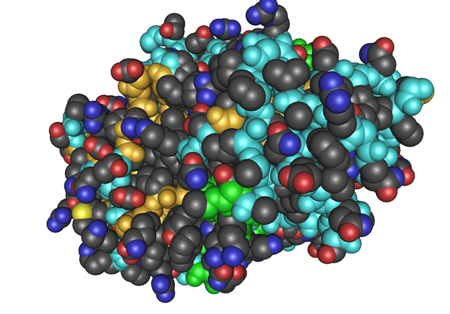A research team headed by Paula Hammond from the Massachusetts Institute of Technology (MIT) has created a nanoscale biological coating that is capable of stopping bleeding almost immediately, paving the way to reduce the rate of battlefield deaths.
 MIT researchers have developed a coating of thrombin, shown here, and tannic acid. After being sprayed onto a surface, the material can halt bleeding within seconds. (Image: Wikimedia/Nevit Dilmen)
MIT researchers have developed a coating of thrombin, shown here, and tannic acid. After being sprayed onto a surface, the material can halt bleeding within seconds. (Image: Wikimedia/Nevit Dilmen)
The nanoscale biological spray coating comprises thrombin, a blood-clotting protein. Sponges coated with this substance can stably be stored and can be carried easily by medical personnel or soldiers. These sponges can be equally useful in civilian hospitals, said Hammond.
To create the sponge system, the research team applied the nanoscale biological coating, which comprises two alternating layers onto the sponge. The team found that tannic acid, a tiny molecule present in tea, and the thrombin layers form a film consisting of a significant quantity of functional thrombin.
David King, who is an instructor in surgery and a trauma surgeon at Massachusetts General Hospital, stated that a major benefit of the spray method is that it coats even the interior fibers, thus packing a significant quantity of thrombin into the sponges. The coated sponges can be stocked up for several months prior to utilization. This sponge can easily be conformed onto a variety of wounds, thanks to its flexibility.
In animal tests at Ferrosan Medical Devices, the coated sponges were applied with mild pressure over wounds within 60 s. The sponges prevented the bleeding nearly immediately. The research team has submitted a patent application for this method and on similar sponges with vancomycin, an antibiotic. At present, Hammond’s lab is trying to integrate the antibiotic and blood-clotting activities in one sponge.